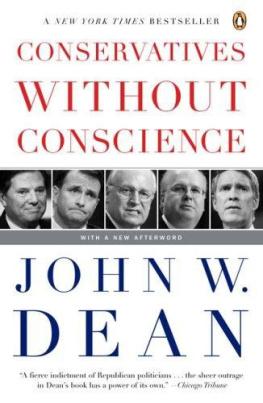Contents
Landmarks
Print Page List
Copyright 2022 by Jeremy W. Peters
All rights reserved.
Published in the United States by Crown, an imprint of Random House, a division of Penguin Random House LLC, New York.
Crown and the Crown colophon are registered trademarks of Penguin Random House LLC.
Library of Congress Cataloging-in-Publication Data
Names: Peters, Jeremy (Jeremy W.), author.
Title: Insurgency / Jeremy Peters.
Description: First edition. | New York : Crown, [2022] | Includes bibliographical references and index.
Identifiers: LCCN 2021040114 (print) | LCCN 2021040115 (ebook) | ISBN 9780525576587 (hardcover) | ISBN 9780525576600 (ebook)
Subjects: LCSH: Republican Party (U.S. : 1854- )History21st century. | Trump, Donald, 1946Influence. | ConservatismUnited States. | Right-wing extremistsUnited States. | United StatesPolitics and government21st century.
Classification: LCC JK2356 .P38 2022 (print) | LCC JK2356 (ebook) | DDC 324.2734dc23/eng/20211019
LC record available at https://lccn.loc.gov/2021040114
LC ebook record available at https://lccn.loc.gov/2021040115
Ebook ISBN9780525576600
crownpublishing.com
Book design by Victoria Wong, adapted for ebook
Cover design: Oliver Munday
Cover images: Prasit Photo/Getty Images (White House, top), Bloomberg/Getty Images (Donald Trump, middle), Michael S. Schwartz/Getty Images (Sarah Palin, bottom left), Win McNamee/Getty Images (Rush Limbaugh, bottom middle), Paul Zimmerman/Getty Images (Sean Hannity, bottom right)
ep_prh_6.0_139149577_c0_r0
Contents
A Note on Sourcing
Insurgency draws on interviews with more than three hundred people, the vast majority of which were conducted during the four years that Donald Trump was president. Many of them were conducted on background, under the condition that the author not reveal the source. But many were also on-the-record conversations that often lasted several hours and occurred in multiple sittings. Where the quotes are rendered in present tenseBuchanan says or Cantor recallsthat indicates material from interviews conducted with the author on-the-record. Scores of the senior-most elected officials and top strategists in the Republican Party agreed to speak for this book, as did some of the most powerful figures in conservative media. This includes members of the Trump cabinet, staff of both Trump presidential campaigns, several former chairmen of the Republican National Committee, current and former governors, senators, House members, and Trump himself. They provided a wealth of private communications, including confidential memos, personal emails, contemporaneous notes of meetings, and memoirs they never published. Quotes in the past tense are typically taken from other journalistic accounts of the events described or are reconstructions of conversations explained to the author under the condition that the source not be named. Where the author has cited scenes, events, documents, and other information from outside journalistic sources, those are credited in the notes at the end of the book. For a more specific accounting of the journalists whose work the author relied on most frequently, please see the acknowledgments at the end of the book.
Introduction
This Isnt Their Republican Party Anymore
I have the tough people, but they dont play it toughuntil they go to a certain point. And then it would be very bad, very bad.
President Donald J. Trump , in an interview with Breitbart News, March 13, 2019
Adam Kinzinger had a higher threshold than most for danger. But something about January 6, 2021, made the forty-two-year-old Air Force veteran uneasy as he got ready to go into work. As a combat pilot, he had flown missions in Iraq and Afghanistan during the wars. When he was in his twenties, he helped apprehend a knife-wielding man in downtown Milwaukee whod just slashed a woman in the face, chasing the man down and pinning him to the ground until police arrived. Kinzinger was one of eighty-seven Republicans swept into the House of Representatives in 2010 with the help of the Tea Partythat anvil of resentment and rage that promised to flatten Washington and Take America Back, as a popular slogan at the time summed up the movements animating spirit. Kinzinger believed that the country was a pretty dysfunctional place then.
The federal government was saddled with more than $13 trillion in debt and on the verge of implementing a costly new government-run healthcare system. Kinzinger, like many of his new colleagues, ran on a message that the Democrats and their new president, Barack Obama, were gambling with the countrys future by spending so much money. He won Sarah Palins endorsement, one of most coveted imprimaturs of maverick conservative authenticity. Kinzinger sometimes shook his head when he thought about his generationthe generation that would soon be in chargewith a kids these days sense of apprehension.
At first, many of Kinzingers fellow freshman Republicans struck him as the solution. They were willing to fight for their country, if not physically like he had, then on the field of representative democracy, which he considered the next best thing. They showed up for work in the U.S. Capitol with their foam mattresses and toothbrushes, saying they would rather live in their offices than rent an apartment and lay down roots in the swamp that was Washington. Like a liberating army, they would secure the place and then be gone. But it didnt take Kinzinger long to see an ugly, irrational side to many of his Tea Party allies. They scorned him for siding with Republican leadership in debates over spending. Fiscal hawks like Paul Ryan, a forty-one-year-old rising star from Wisconsin, were calling for enormous cuts to social programs, and yet hard-right Tea Party members wanted to cut even more. In an attempt to punish Kinzinger for the perceived betrayal, activists leaked his cellphone number online along with the numbers of other members who had gone along with the smaller cuts. Looking back on the incident years later, he realized that was when he could see the movement was more reactionary and vindictive than what he had signed up for. The beginning of the new Tea Party, he says. Whether it was the portent of something new or the moment the pretenses about the Tea Partys true character fell away, Republicans like Kinzinger could no longer deny that the insurgency they rode to power was turning on their party from within.
Kinzinger had grown alarmed about what might happen on January 6 as it became clear that President Donald Trump and his supporters would not accept defeat. He saw how Trumps most devoted followers werent becoming less enamored with him. Instead, they were taking up his latest rallying crySTOP THE STEALjust as they had with his others like BUILD THE WALL and LOCK HER UP. After multiple people were stabbed at a pro-Trump rally in Washington in December, Kinzinger thought the presidents insistence that he had been cheated of victory had gone beyond self-indulgent delusion. It might get someone killed. And the rally scheduled for the sixth, billed as the Save America Rally, seemed like the place Kinzinger thought it might happen, since that was the day the United States Congress would make official the reality that Trump and his followers refused to accept.










